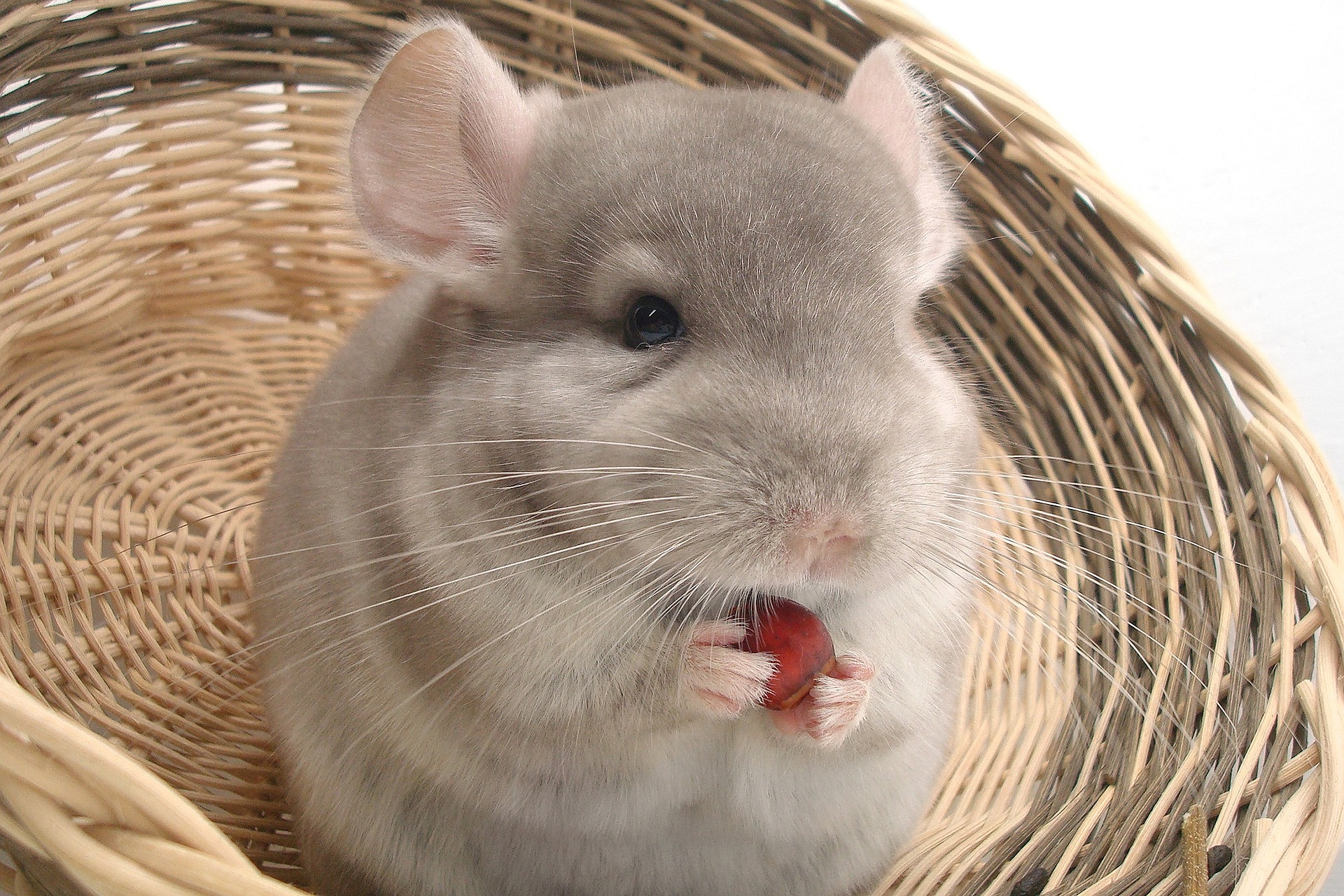Proper Feeding of Chinchilla Food
For chinchillas that cannot access food freely in captivity, a high-quality chinchilla food is essential as a nutritional supplement.
Maintaining Nutritional Balance with Small Amounts
The taste and quality of hay can vary throughout the year, leading to potential imbalances in nutrition. Therefore, it’s necessary to provide a small amount of chinchilla food to ensure they receive a stable nutrient intake.
In the wild, chinchillas instinctively gathered food to maintain their nutritional balance. However, in captivity, they cannot do this. Feeding only hay requires a wide variety of plant parts and a substantial amount of it to meet their nutritional needs, which is why chinchilla food is offered in addition to their primary hay diet.
Feeding Timing and Frequency
Chinchilla food should be provided once or twice a day. As chinchillas are most active at night, it’s best to feed them in the evening, with a smaller portion in the morning. However, some chinchillas may enjoy their food in the morning after a night of play.
Chinchillas often have a habit of eating only half of their food and discarding the rest. If you notice leftover food in their dish, be sure to remove any old food before adding new food. Since it can be hard to tell whether they are not eating or simply discarding food, monitor closely when you refill their food dish to ensure they are eating.
Chinchilla food is sensitive to heat and humidity, so always check the expiration date and store it in a cool, dark place.
Choosing the Right Chinchilla Food
Start with the chinchilla food that your pet was eating before you adopted it. Once they are settled in, you may consider switching to a different food. Research reputable brands by reading reviews and consulting pet store staff. Ensure the new food lists all ingredients and nutritional content clearly, avoiding any products with artificial colors or preservatives.
Transitioning to New Chinchilla Food
Switching chinchilla food abruptly can lead to your pet refusing to eat or developing digestive issues, such as diarrhea. To prevent this, gradually mix the new food with the old, slowly increasing the new food’s proportion over time.
Be Cautious of Overfeeding
Chinchillas use their front teeth to chew tough hay and grind it with their molars, which helps maintain their ever-growing teeth. Therefore, hay is crucial for both nutrition and dental health. Chinchilla food is typically not chewed in the same way, and overfeeding can lead to obesity and a decrease in hay consumption.
A good rule of thumb is to feed chinchilla food in amounts that total about 1% to 3% of their body weight, adjusting based on their individual metabolism, size, activity level, and coat characteristics.



Comments